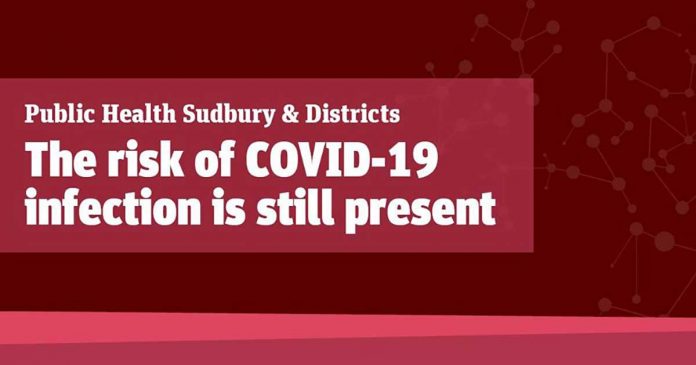Second part in Expositor series explores 2019-2020 trends at Manitoulin Northshore Victim Services
EDITOR’S NOTE: The Manitoulin Expositor has learned of an increase in violent crimes in the Manitoulin area in 2020. Over the course of this series, this newspaper will speak with law enforcement officials to learn about what has been happening in Island communities, as well as with agencies that provide support to victims and their families to learn about what may be driving some of the trends.
MANITOULIN – Statistics from Manitoulin-Northshore Victim Services (MNVS) show a 60 percent increase in the numbers of people it has served in relation to incidents of domestic violence, though overall numbers of people it has helped between 2019 and 2020 only showed growth of nine percent, from 187 in 2019 to 204 in 2020.
“We had 80 domestic occurrences in 2020. That’s the largest number (per category) of calls we received last year, so that’s where I zero into in terms of statistics as well,” said Tanya Wall, executive director of MNVS. “It’s pretty consistent with other groups that respond to domestic violence; it seems to be the trend.”
During the pandemic MNVS has not paused offering services to those in need, though it has shifted more to phone services and pulled its volunteers off direct support calls. The organization is a volunteer effort that offers short-term crisis intervention services for people facing tragic circumstances or those who are impacted by crime, immediately after an incident.
It serves a catchment area including Manitoulin Island and the North Shore between Massey and Sudbury’s city limits.
In 2019, MNVS supported 50 victims of domestic violence, meaning 2020’s figure is an increase of 60 percent. The second-most-common category in 2020 was tragic circumstances such as house fires or a sudden death, which was the most common type of aid from 2019. It saw a 26 percent decrease year over year, from 69 in 2019 to 51 in 2020.
Sexual assaults remained exactly unchanged at 21 and assault was the fourth most common category in both years, seeing a 14 percent decrease from 14 in 2019 to 12 in 2020.
“(Sexual assault) is an interesting one, because the question is ‘have the numbers remained the same, or are people just reporting less?’ Sometimes, it’s a combination of that,” Ms. Wall said.
When someone has to stay in their home during pandemic restrictions, for example, they may be in constant close proximity with a person who is abusing them, which means it may not be safe to call for help. Recent reports have shown troubling correlations on this statistic.
“With organizations like the Assaulted Women’s Helpline, they’re seeing a direct relationship from when lockdowns are lifted and getting a surge of calls. That suggests there is an inability for people to make calls, translating into those numbers a bit, which is scary,” Ms. Wall said.
Another element of this is that many reports of domestic violence come from family and friends who notice changes or subtle injuries when meeting in person. With so much social interaction on hold this past year, those friends and family members may not recognize the signs that a loved one is facing abuse.
“We have to become that much more creative and adaptive so we can still provide support and make sure those in need of help know there’s help available. In our case, we’re still providing 24/7 support but it looks different than it did pre-COVID; it’s mostly phone support and we’ll meet with victims in the community,” Ms. Wall said. In the past, volunteers from MNVS would often visit victims at home or in hospital settings.
Some of the factors that may have led to the changes in this year’s statistics include isolation, anxieties over the virus and economic pressure, but Ms. Wall said there has been a three-year trend of year-over-year increases in police-reported family violence, following a steady decline before that.
“I’m sure the pandemic is having an impact, but this is a trend we’re seeing separate from that,” she said.
MNVS responses related to break and enters and other crimes (including attempted murder) are each up 200 percent, from three in 2019 to nine in 2020.
“That’s very significant in a small community. I don’t have specific details on our cases but we are seeing, generally when we collaborate a lot with other community organizations, opioid-related incidents are continuing to be on the rise,” said Ms. Wall, though she said those would likely apply more in the tragic circumstance category discussed above.
Ms. Wall pointed to a Statistics Canada report showing 2019 as being the third straight year of a 13-percent increase in police-reported family violence. From 2009 to 2016, numbers had dropped 19 percent.
Further speaking to Ms. Wall’s information about people having fewer opportunities to report incidents during the pandemic, a comparison of police incidences between March and October in 2019 and 2020 show an 18 percent decrease in police-reported calls across Canada.
Most of the selected violations showed decreases in those time periods, from a 47.5 percent drop in shoplifting to assaults by family decreasing by 4.3 percent.
Some showed increases, though, including a two percent increase in uttering threats by family.
Despite the decrease in the selected violations, overall calls for service were up 8.4 percent. This included an 8.2 percent growth in domestic disturbances, a 12.2 percent increase in mental health issues, a 9.2 percent increase in overdoses and increases between 12 and 17 percent in child welfare checks, general wellness checks and child custody manners.
The one category of calls for service that dropped was suicides and attempted suicides, down 5.9 percent during the first eight months of the pandemic compared to the same time period in the previous year.
Back on Manitoulin, Ms. Wall said the past year has brought the challenges of communicating to people that MNVS is still active and offering services at a time when so many other programs have taken pauses.
“We’re continuing to do what we always do, responding and providing immediate crisis intervention services when needed to those affected by crime and tragic circumstances,” she said.
The local report has some positive figures, too. Motor vehicle accident support is down 43 percent, possibly due to more people staying at home. MNVS has also responded to fewer elder abuse (down to one from three in 2019), and hate crime and vandalism have both dropped from one to zero.
Some local figures remained nearly the same. Human trafficking and theft/fraud remained steady at seven and three respectively; criminal harassment was up one to five supports in 2020 and homicide was up by one to two over the same comparison.
Ms. Wall stressed that anyone in need of support should continue to reach out. MNVS offers ways to connect on its website, MNVictimServices.ca, and can be reached by phone at 705-370-3378, or toll-free at 1-866-392-7733.
“Anyone who has been a victim of a crime or tragic circumstance, or their family members or witnesses can contact us for support directly. You don’t need a referral from anybody else,” she said.
The volunteer group also actively invites people to sign up to get involved and become crisis responders. Contact MNVS for details about how to support the organization.





